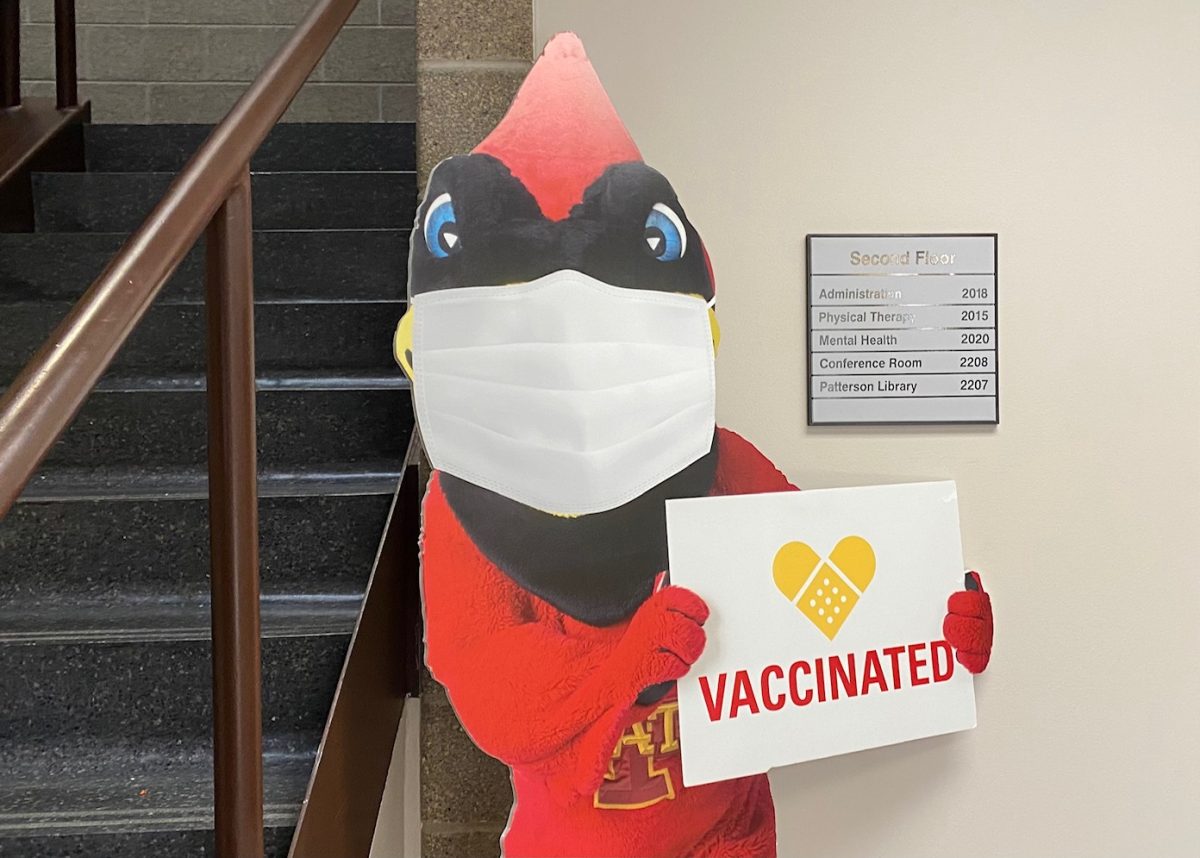Students rise to 5+5 challenge in FSHN class
September 28, 1998
What does 5+5 mean to you? Ten?
To students taking Food Science and Human Nutrition 167, 5+5 means learning to eat a balanced diet and to exercise on a regular basis.
Wendy White, professor of FSHN 167, said the 5+5 Challenge started in 1996 when McFarland Clinic wanted C. Everett Koop, former U.S. surgeon general, to come and speak to the Ames community. Koop agreed to come to Ames and speak only if a public health campaign was implemented in Story County.
The 5+5 Challenge was a six-month program designed to teach people in the community how easy it is to eat right and exercise several times a week.
The intent of the program was to get participants to eat five servings of fruits and vegetables a day and to exercise for 30 minutes five times a week.
White said her class got involved with the 5+5 Challenge when it was introduced to the Ames community.
“What I like about [the 5+5 Challenge] is that we are not only teaching healthy lifestyles and healthful behaviors,” White said, “but this gives us a chance to actually try to modify behaviors of students in the course.”
Tanya Hargrave-Klein, 5+5 Challenge committee member, said she thinks the program helped Ames community members by increasing their awareness of different types of physical activity and eating habits.
Hargrave-Klein also said students can incorporate five fruits and vegetables into their diet by remembering several tips.
“Fruits and vegetables are nature’s fast food,” Hargrave-Klein said. “They’re readily available and don’t require a lot of preparation.”
The 5+5 challenge is no longer being offered in the Ames community, but White is continuing to offer it in her class. White said students are given the opportunity to participate in the program as an extra-credit activity in the class.
The students participate in the program for two months and have to complete a checklist indicating how often they have exercised and how many fruits and vegetables they have eaten.
“The rationale is that there’s mounting evidence that even moderate physical activity has major health benefits,” White said.
The program includes activities for people of every level of fitness, White said. Exercise that participants can do includes walking, using the stairs more, biking, skiing, jogging, aerobics, recreational sports, yard work and gardening.
“One of the goals of this program is to show people you don’t have to go out and run a mile, but simple things like gardening or walking to class can have health benefits,” White said.
White said about one-half to two-thirds of her class of about 350 students typically sign up for the 5+5 Challenge. Even though the students receive the extra-credit no matter how well they do in the program, White said she hopes the students will learn to lead healthier lifestyles as a result of the 5+5 Challenge.






